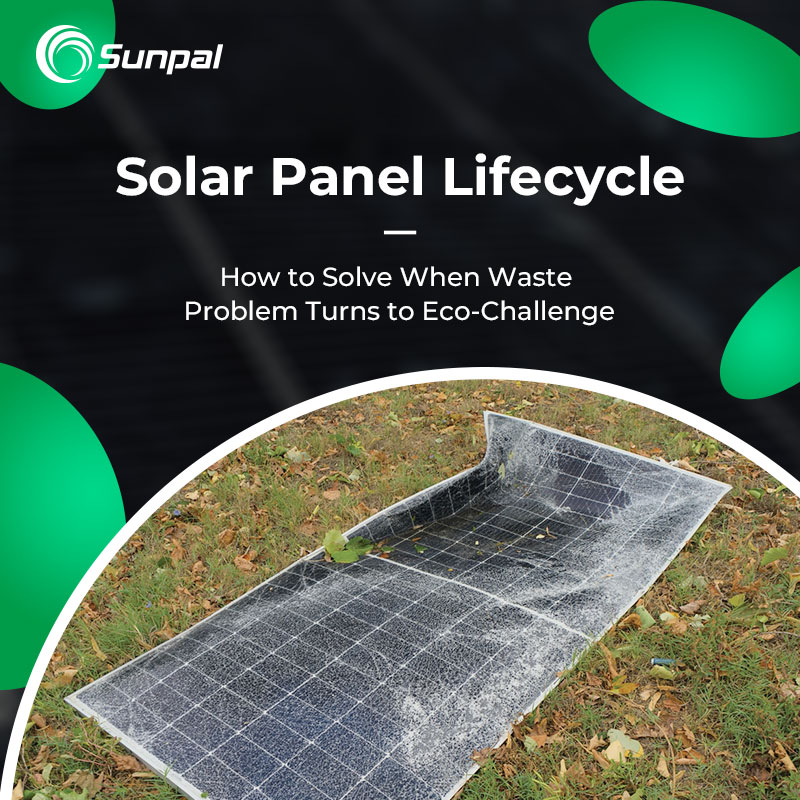
Ever been curious about what happens to solar panels when they reach the end of their useful life? Just like every other electronic device, solar panels degrade over time. This degradation is akin to the aging process in humans - inevitable and natural. As the sun's energy is converted into electricity, the components of the panels undergo physical decay, leading to a decline in their performance. This is a natural part of the lifecycle of a solar panel, but it also creates a significant challenge. It's like when you have an old car that no longer runs efficiently. What do you do with it? Similarly, what do we do with solar panels when they become less effective?
Solar Panel Recycling: Keeping the Green in Green Energy
So, you're all about that solar life, soaking up the sun's rays and powering your home with clean energy. Awesome! But ever wondered what happens to those trusty solar panels once they've reached retirement age? Just like that old pair of sneakers, they don't last forever.
Most
solar panels manufacturer produce this with a lifespan of about 25-30 years, kind of like a warranty for good behavior. But after that, they start to experience what's called "degradation." It's like wrinkles and gray hair for solar panels – the materials wear down, they become less efficient at converting sunlight into electricity, and eventually, they need to be replaced.
The Not-So-Sunny Side of Solar Panels: The Waste Challenge
Now, here's where things get a bit tricky. We can't just toss old solar panels into the regular trash bin like banana peels or junk mail. They're made of materials like glass, metal, and silicon, which don't exactly decompose and become one with the earth. If we're not careful, we could end up with mountains of solar panel waste, which kind of defeats the purpose of going green, right?
Experts estimate that by 2050, we could be dealing with a whopping 60 million tons of solar panel waste globally! That's a lot of panels piling up. And this isn't just a problem for remote areas;
as more and more cities embrace rooftop solar, urban areas will need to grapple with this waste challenge too.
From Trash to Treasure: The Magic of Solar Panel Recycling
But before you start feeling bummed out, let's talk about the exciting world of solar panel recycling! It's like giving these old panels a superhero makeover and transforming them into something new and useful.
There are several ways to recycle solar panels, each with its own superpowers:
-
Mechanical Recycling: This is like taking apart a Lego set. We dismantle the panels and separate the different materials, like glass, metal frames, and silicon wafers. These materials can then be used to make new products, like construction materials or even new solar panels!
-
Thermal Recycling: This method uses heat to melt down the panels and recover valuable materials. It's like turning those old panels into a solar smoothie! The recovered materials can be used to create new solar cells or other products.
-
Chemical Recycling: This process uses chemicals to break down the panels and extract valuable elements like silver and silicon. It's like a science experiment with a cool outcome – recovering precious materials that can be reused in various industries.
Innovation: Supercharging Solar Panel Recycling
The coolest part is that researchers and companies are constantly innovating and coming up with even better ways to recycle solar panels. It's like witnessing the evolution of smartphones – things are getting more efficient and sophisticated all the time!
Some companies are even designing solar panels with recycling in mind, making them easier to disassemble and recover materials. It's like building with Lego blocks – everything snaps together and comes apart easily.
Policy Power: Setting the Rules for a Sustainable Future
Of course, technology alone can't solve everything. We also need governments to step up and create clear rules and regulations for solar panel recycling. It's like having a referee on the field to ensure everyone plays fair and follows the rules.
Clear policies can encourage responsible recycling, prevent illegal dumping, and support the growth of the solar panel recycling industry.
Looking Ahead: A Bright Future for Solar and Recycling
As we move towards a more sustainable future, solar panel recycling will play a crucial role in ensuring that our clean energy efforts truly live up to their name. By investing in innovative recycling technologies, supporting responsible policies, and raising awareness about the importance of recycling, we can ensure that old solar panels don't become tomorrow's waste problem, but rather a valuable resource for a greener tomorrow.
In conclusion, the lifecycle of a solar panel doesn't end when its efficiency starts to decline. The challenge of managing solar panel waste is a significant one, but it also presents an opportunity for innovation and improvement. By supporting sustainable practices in solar panel lifecycle management, we can help transform this waste problem into an eco-challenge, thereby fostering a more sustainable future for the solar industry. So, the next time you look at a solar panel , remember that it's not just a piece of technology—it's a symbol of our potential to create a sustainable future.
